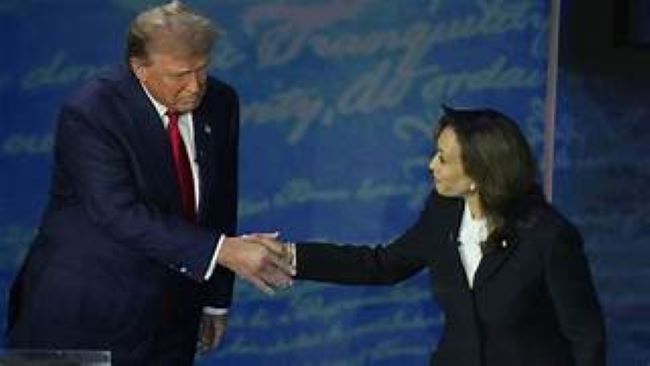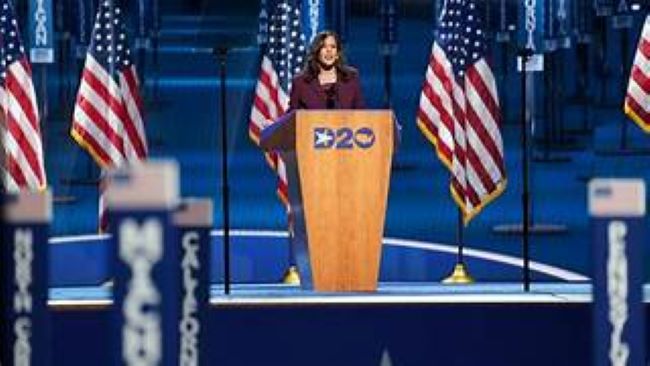28, September 2024
Race for the White House: Harris visits border to neutralize weak spot against Trump 0
Kamala Harris was due to deliver a tough-on-illegal-migration message after visiting the US-Mexico border Friday, directly tackling the politically explosive issue in a bid to blunt one of Donald Trump’s main attack lines in their fight for the White House.
The US vice president’s trip to Arizona — her first to the border since replacing President Joe Biden as Democratic nominee in July — comes as polls show illegal migration remains one of her biggest vulnerabilities against the Republican.
Harris will call for tougher security in the speech in the border town of Douglas and accuse Trump of killing attempts to pass a bipartisan migration bill in hopes of boosting his own election chances, her campaign said.
“The American people deserve a president who cares more about border security than playing political games,” she plans to say, according to her campaign.
A campaign official told reporters that Harris will announce that as president she would strengthen border restrictions recently put in place that successfully stemmed the flow of undocumented crossings.
Harris made an unannounced visit to the border wall in Douglas, where she met with Border Patrol officials and was photographed alongside the distinctive metal slats at the international frontier.
Arizona is also one of the half-dozen battleground states that are expected to decide the agonizingly close November 5 election, and it is where polls show Harris may have to do the most work.
Former president Trump has turbocharged the border issue in recent weeks as he seeks an edge against Harris, America’s first female, Black and South Asian vice president.
The 78-year-old has called for mass deportations, amplified bogus claims about migrants eating pet cats and dogs, and stepped up his racially charged rhetoric about an “invasion” of illegal immigrants who he claims consist of murderers, rapists and mentally ill people.
Source: AFP



























10, October 2024
US: Trump refuses presidential debate ‘rematch’ with Harris 0
Donald Trump ruled out a second US presidential debate with rival Kamala Harris on Wednesday, hours after Fox News offered to host a candidate showdown later this month before Election Day on November 5.
The Republican ex-president and Democratic vice president, locked in an excruciatingly close White House battle, have faced off just once, in September, and despite suggestions by multiple news outlets, it appears they will not meet again before the vote.
“It is very late in the process, (early) voting has already begun — there will be no rematch!” Trump said in an all-caps post on his Truth Social media platform, nixing the possibility of a follow-up to the candidates’ first debate in Philadelphia.
“Kamala stated clearly, yesterday, that she would not do anything different than Joe Biden, so there is nothing to debate,” Trump added.
Harris had previously challenged Trump to a debate hosted by CNN on October 23, but the former president declined.
Trump also said that Harris, who became the Democratic nominee after President Biden ended his reelection bid following his disastrous debate with Trump, had backed out of a previous debate offered by Fox, although the Harris campaign had not publicly accepted the proposal.
The candidates did agree to debate on ABC News on September 10, and the vice presidential running mates — Republican J.D. Vance and Democrat Tim Walz — squared off on October 1.
But while Trump said he had agreed to participate in a September 4 debate on Fox, as well as one on September 25 on NBC News, Harris never did.
The vice president, after positive reviews that she had bested Trump in their encounter, had expressed interest in doing a second debate, but the plans never came to fruition.
Fox for its part sent letters Wednesday to the two campaigns offering “one final pitch for a debate” between Harris and Trump, either on October 24 or October 27.
“This would present an opportunity for each candidate to make his or her closing arguments,” wrote Jay Wallace, president of Fox News Media.
Source: AFP